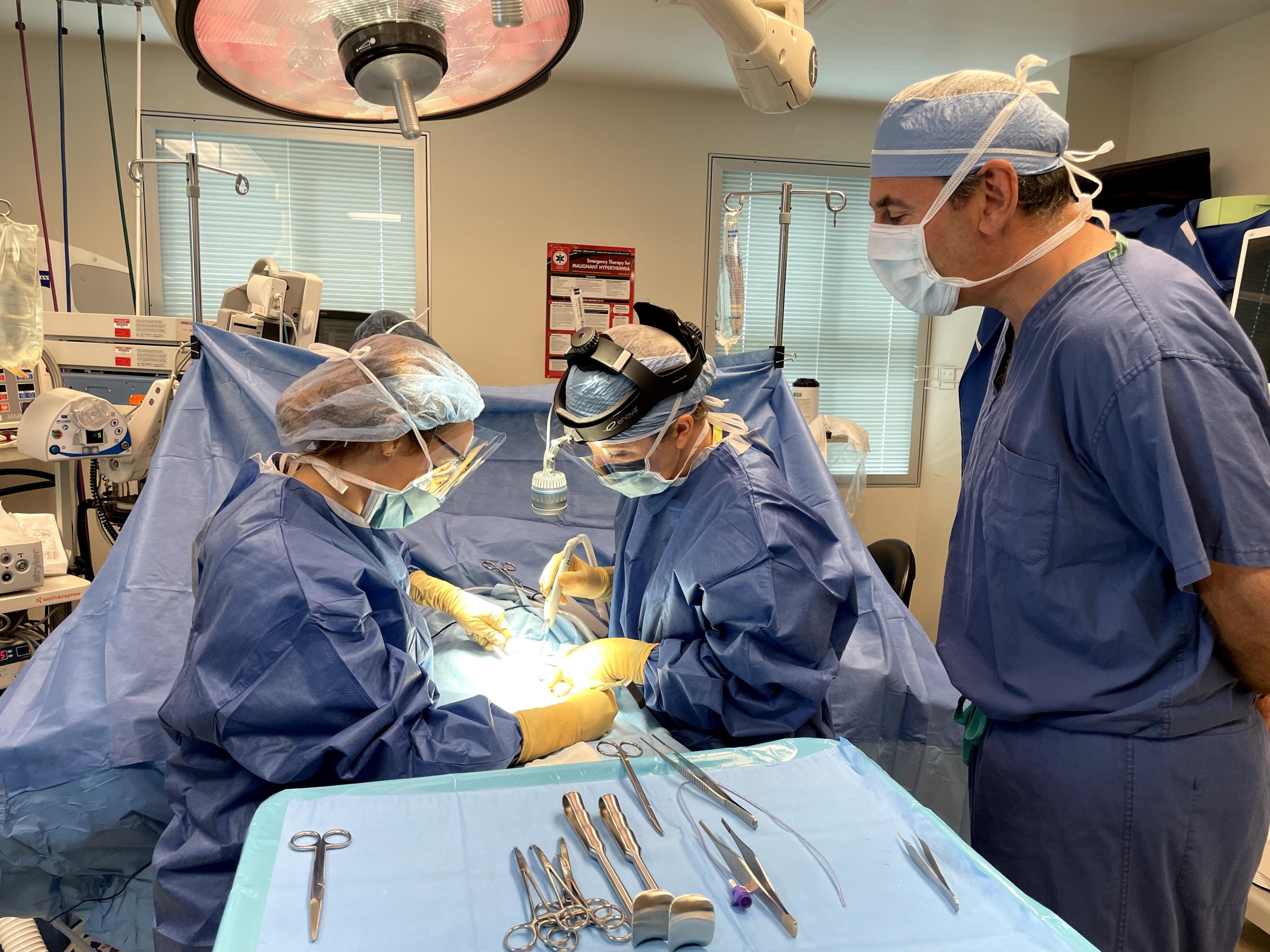
Most hernia surgeries in the US are performed in an operating room with a team including a surgeon, a surgical technologist, a circulating room nurse, and anesthetist or anesthesiologist. Rarely, the surgeon may have an assistant surgeon and more frequently the assistant may be a resident (surgeon in training), a nurse or technologist first assistant. Having a trained and dedicated Physician Assistant, also know as a PA, provides a surgeon with a much more specialized and proficient professional co-pilot, someone who knows the surgical disease and operation just as well as they do and serves as an adjunct to patient care rather than a trainee requiring direction from the surgeon.
A physician assistant is a highly trained practitioner who can practice medicine, in various roles. They can practice general medicine, serve as a primary care provider, or can specialize in a certain area of medicine or surgery. PAs complete a bachelor’s degree and then complete a two to three year master’s program where they are trained to be a medical provider. They obtain a professional degree and practice medicine in a similar fashion to doctors and nurse practitioners. They have a supervising physician with whom they often work closely. PAs who work in surgical specialties across the country are licensed and trained to assist in or perform portions of surgeries in order to facilitate care and improve quality. They often are some of the most adept practitioners at managing surgical disease and assisting in surgeries. At Boston Hernia, our physician assistants are trained to function as highly skilled hernia surgeons. They see thousands of patients in the office and assist in every surgery. This dramatically decreases the chance of surgical errors and is instrumental in avoiding complications.
The training process at Boston Hernia for every one of our providers, including physician assistants, is quite rigorous, regardless of their previous experience. This is all for the benefit of the patient. In a model adapted from a high volume, high functioning hernia hospital called the Shouldice Hospital in Toronto, Canada, our PAs are closely supervised until they demonstrate a high level of expertise both in the office and in the operating room. After several months at Boston Hernia, our PAs have the equivalent experience with hernia patients that most general surgeons take decades to achieve. Being seen by an experienced hernia surgery PA at Boston Hernia is the same as seeing a top hernia surgeon specialist.
Patient education is second to none because each patient has two providers (surgeon and PA) to take care of them. The team has ample time in the initial office consultation to let patients tell their story, make the diagnosis, and educate patients on their condition and possible surgery. On the day of surgery, the surgeon and PA team share in evaluating and educating patients, allowing more time to focus on providing the best care in surgery. At Boston Hernia, PAs can start and finish any surgery independently, so the final incision looks and heals like a plastic surgeon performed the finishing touches. Additionally our PAs have assisted in and have been trained to perform almost every step of any operation in order to be a second set of trained eyes and hands assisting the surgeon. This skill can take several years of training to achieve, but once there, a PA can detect even the smallest of anatomical abnormalities or small mistakes that routinely occur during an operation. By alerting the surgeon to these discrepancies, they can be addressed in real time, in the operating room, rather than weeks or months later when a complication becomes more evident.
Just as every pilot has a co-pilot, our PAs serve as highly trained, invaluable hernia experts to assist our surgeons during hernia repairs. By having highly experienced providers, patients get an expert in every aspect of their care, elevating their experience and increasing their safety. Our outcomes speak for themselves: patients recover faster and with less complications.
